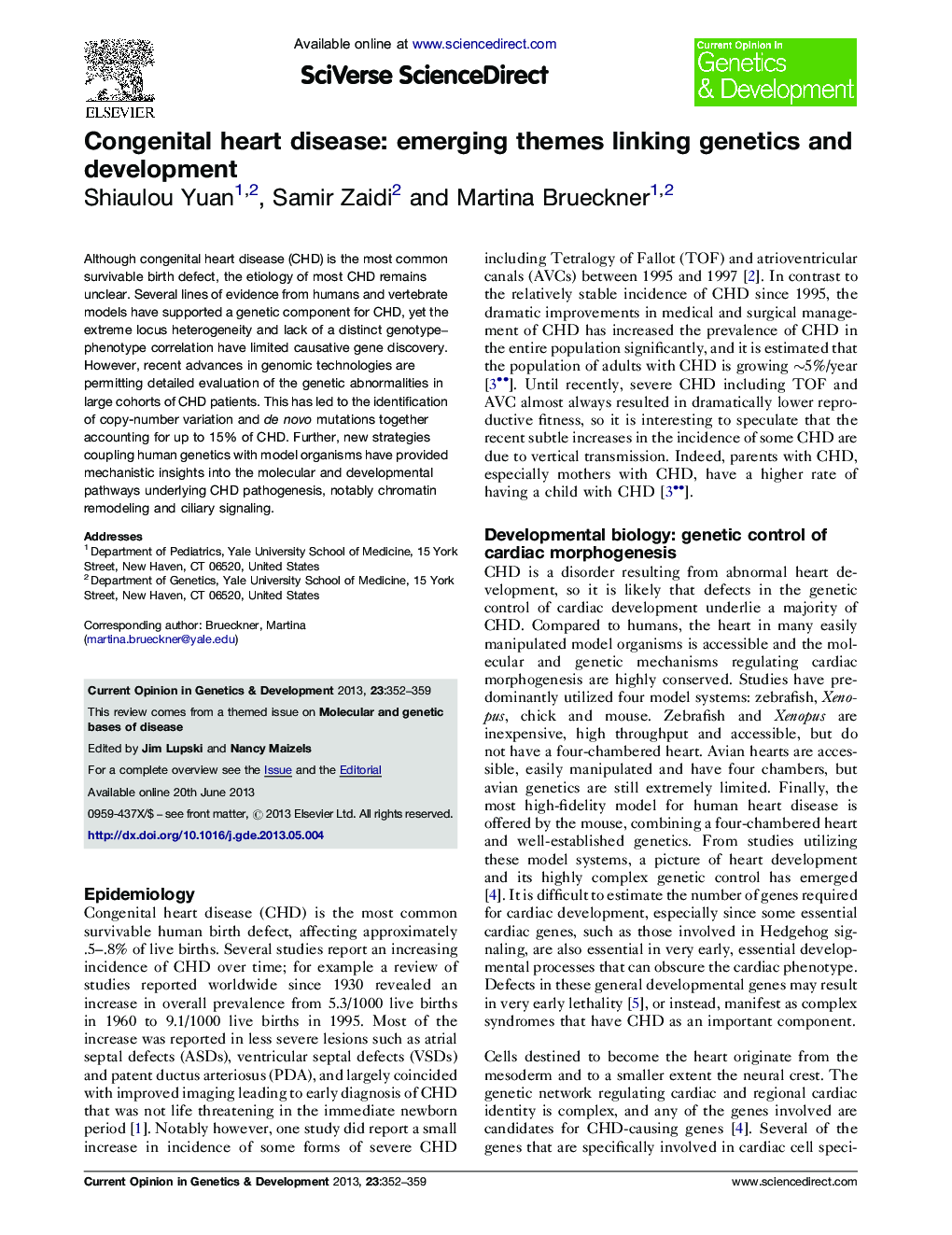| Article ID | Journal | Published Year | Pages | File Type |
|---|---|---|---|---|
| 5893728 | Current Opinion in Genetics & Development | 2013 | 8 Pages |
Abstract
Although congenital heart disease (CHD) is the most common survivable birth defect, the etiology of most CHD remains unclear. Several lines of evidence from humans and vertebrate models have supported a genetic component for CHD, yet the extreme locus heterogeneity and lack of a distinct genotype-phenotype correlation have limited causative gene discovery. However, recent advances in genomic technologies are permitting detailed evaluation of the genetic abnormalities in large cohorts of CHD patients. This has led to the identification of copy-number variation and de novo mutations together accounting for up to 15% of CHD. Further, new strategies coupling human genetics with model organisms have provided mechanistic insights into the molecular and developmental pathways underlying CHD pathogenesis, notably chromatin remodeling and ciliary signaling.
Related Topics
Life Sciences
Biochemistry, Genetics and Molecular Biology
Developmental Biology
Authors
Shiaulou Yuan, Samir Zaidi, Martina Brueckner,
